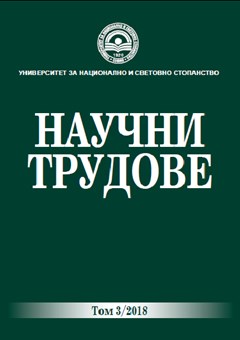Икономика на щастието: относителната природа на човешкото субективно благосъстояние
Happiness Economics: The Relative Nature of Human Subjective Wellbeing
Author(s): Teodor SedlarskiSubject(s): Economy, Human Resources in Economy, Socio-Economic Research
Published by: Университет за национално и световно стопанство (УНСС)
Keywords: subjective wellbeing; happiness; relative income; absolute income; conspicuous consumption; social status; cardinal utility.
Summary/Abstract: This article analyses problems which gain new popularity among economist in the context of the ongoing Fourth industrial revolution. Why is the ubiquitous decrease of work hours still not happening that was predicted by social scientists in the late 19th and the beginning of the 20th century? Why do individuals not reassign time towards leisure and creative activities in the wake of the constant rise of technological productivity? What impact on happiness have the ever increasing wants and the comparisons with others? Most people assume that they would be happier if only they were richer. The results of subjective wellbeing studies generally contradict this widespread belief. The insights of happiness economics put the detailed study of the factors for the subjective wellbeing and the possibilities to influence it back in the center of economic research through a more enhanced knowledge of human psychology than the conventional economic assumptions.
Journal: Научни трудове на УНСС
- Issue Year: 2018
- Issue No: 3
- Page Range: 19-44
- Page Count: 26
- Language: Bulgarian

